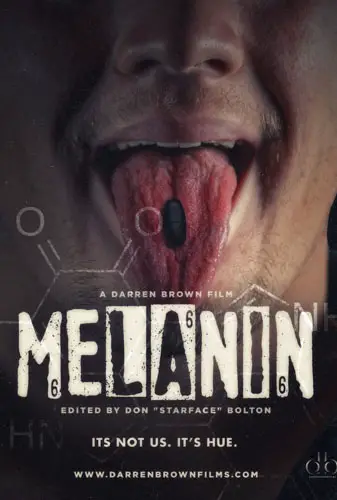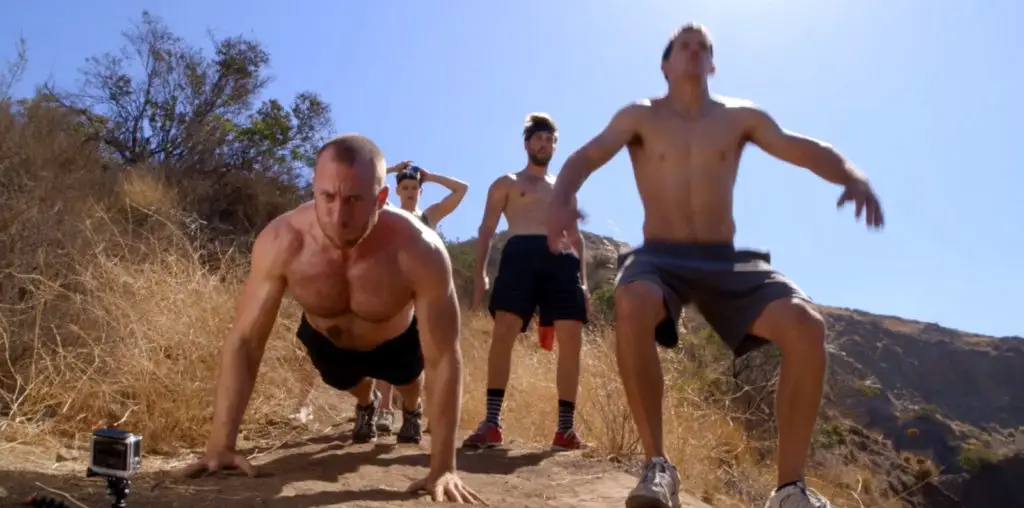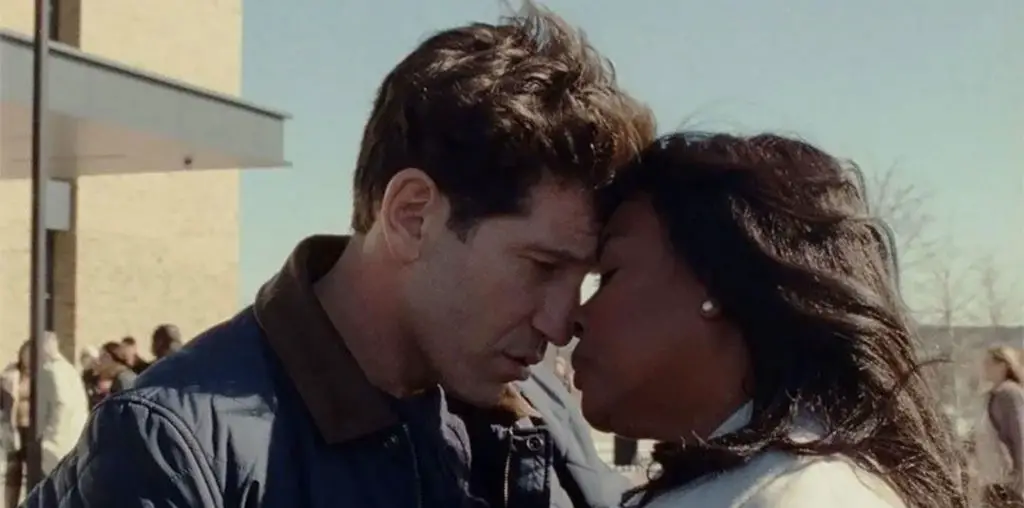
Detroit-based co-writer/director Darren Brown serves up a cold dish of racial irony in his feature Melanin. Young advertising executive Michael (initially played by White actor Robert Francis) is in a turbulent moment in his life. His career is not working out as expected, and his marriage is coming apart. He spends his spare time drinking and smoking weed with his gorgeous friend Carrington (Ciera Angelia).
When he finds himself served with divorce papers and facing a potential layoff, he decides to shore up his finances by enrolling in a clinical trial for a tanning drug being promoted by his agency. Despite this being a clear conflict of interest, he accepts the payment from the pharma company and begins taking the drug. Soon enough, Mike wakes up… Black. Not only has his skin tone changed from fish-belly, pasty White to brown, but his facial structure, hair, and body are also transformed. The credits list the character now as “Black Mike,” and the post-transition role is played by Mari G.

“Soon enough Mike wakes up… Black…”
The next section of Melanin is what you’d expect. Mike must now learn to function as a Black man, and he enlists the aid of his friend Tyrone (Ron Taylor) to be his mentor. This is played for laughs as he goes to a barber shop and becomes familiar with the daily discrimination faced by Black Mike. In his new skin, Mike is more confident, better dressed, smoother, and more outgoing, and all these newly attractive characteristics appeal to his wife, Parker (Kristen Wielenga). She agrees to give the marriage another chance, and life is looking up for Mike.
That’s when everything changes. Around the 1 hr mark in the film, the narrative takes a hard left turn to make a political/cultural point. As soon as Mike goes from White to Black, the film stops being a comedic take on cultural differences and becomes a courtroom drama about a Black man fighting a racially prejudiced justice system to keep his freedom. The transition will snap your head around and make you wonder if you are still seeing the same film. The comedy evaporates, and Mike’s pro-bono lawyer Adams (Marcus Woods) has to defend him in court.

"…Brown demonstrates varsity-level filmmaking skill and potential..."


